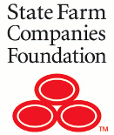Standard 2.4: Beginning teacher formative assessment
Information on beginning teacher formative assessment is provided in great detail in Standard 8, and information on beginning teacher professional development is provided in Standard 7. These areas are so important to the design of induction/mentoring programs that they are summarized below.
Professional Development for Beginning Teachers
Once a framework has been chosen and clear expectations written for a school or district program, the next step is to define essential activities that will begin developing beginning teachers’ skills as well as the relationship between mentors and their beginning teachers. These activities can become part of the program’s professional development plan. Both mentors and beginning teachers will need to be involved in professional development throughout the year, starting with a beginning teacher orientation before the school year begins. Some of the professional development will include both the mentor and the beginning teacher and other times will focus on each group separately. It is important for the leadership team to identify the needs of beginning teachers and try to tailor the professional development to their needs.
Beginning Teacher Cohort/Forums Reflective Discussions
Every year when the school year begins, groups of beginning teachers are hired throughout the country to begin a vocation in the profession of education. These cohorts of beginning teachers often become their own support group as they navigate their way through what surely are the most challenging beginnings to any career.
Programs can and should use these natural learning communities to build the strength of their program by creating time when beginning teachers can come together to reflect on what it means to be a teacher and the struggles that they are facing together. These cohort forums can come in various forms: formal meetings set throughout the year, professional development seminars, or informal social gatherings afterschool. These cohort forums can also be a good place to form cross-district partnerships. ROEs and the Illinois New Teacher Collaborative can assist in these initiatives. Skype, Google+, and other on-line communication vehicles can also help with reaching out and touching a wider range of like-minded communities.
Beginning Teacher Formative Assessment: Needs-based analyses of beginning teacher instruction and student learning
Understanding the needs of beginning teachers can help guide the leadership team in designing the induction/mentoring program. Initiatives that support teachers should be grounded in an understanding of the needs of beginning teachers. Surveying teachers anonymously can help reveal challenges they face that they may otherwise be reluctant to admit for fear of being perceived as ill-prepared. Induction/mentoring programs should work to discover the needs of their own beginning teachers. Some common sources of frustration for beginning teachers include the following:
- Challenges Faced:
- Student/classroom management
- Shared teaching philosophy with school and/or assigned mentor
- Understanding culture of the school and community at-large
- Demonstrating professionalism while struggling to motivate students
- Creating engaging lesson plans that meet Common Core standards
- Communicating with parents and families
- Supports Needed:
- Instructional coaching
- Emotional encouragement
- Modeling best practices
- Relating to school administrators and feeling “backed” by them
- Timely assistance/feedback from mentor
- Professional Development Desired:
- New instructional approaches and strategies
- Differentiated instruction
- Response to Intervention
- Using data to plan and adjust instruction
- Using technology to enhance instruction
- Developing formative student assessments
Knowing that beginning teachers often leave the profession because of frustrations with classroom management, lack of emotional support, and difficulty mastering teaching techniques, induction/mentoring program leaders need to provide targeted support and development focused on common areas of need.
Analysis of Beginning Teacher Instruction
Another important component of any successful program is time for mentors to observe the beginning teachers as well as time for the beginning teacher to visit other classrooms. This is essential in moving beginning teachers forward in the profession. Many programs require between two and four formal observation cycles, in which mentors observe beginning teachers and engage in pre- and post-observation discussion, but this can provide for a larger number of informal visits. Due to time constraints during the school day, the leadership team often must budget for substitutes to cover the mentor’s or beginning teacher’s classes during the observations. A high quality mentor training will include examples of effective data collection, such as classroom observation data. Collecting data will not only provide a basis for the analysis of the beginning teacher’s instruction, but it will also be a portion of the written documentation of the beginning teacher’s work.
Information gathered during the mentor’s observation of the beginning teacher should never be used for teacher evaluation purposes, and all insights must be considered confidential.


